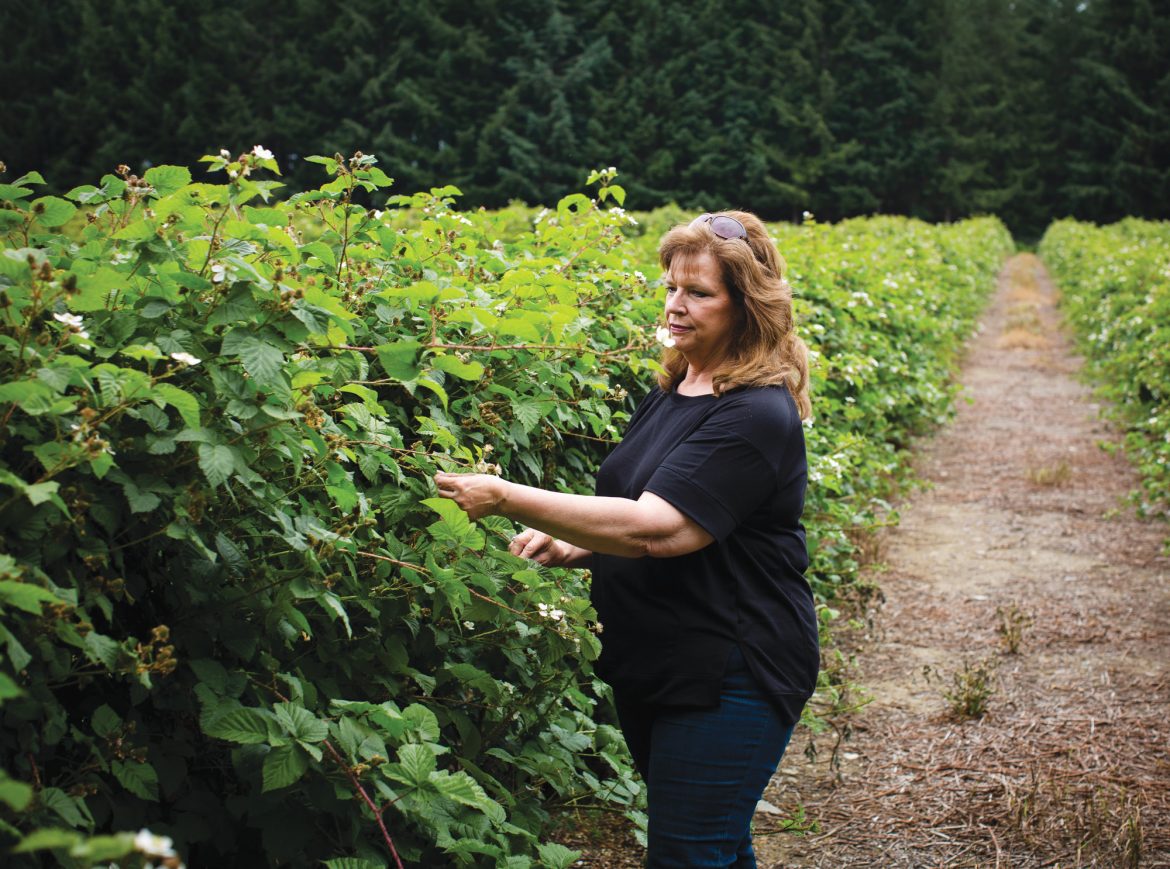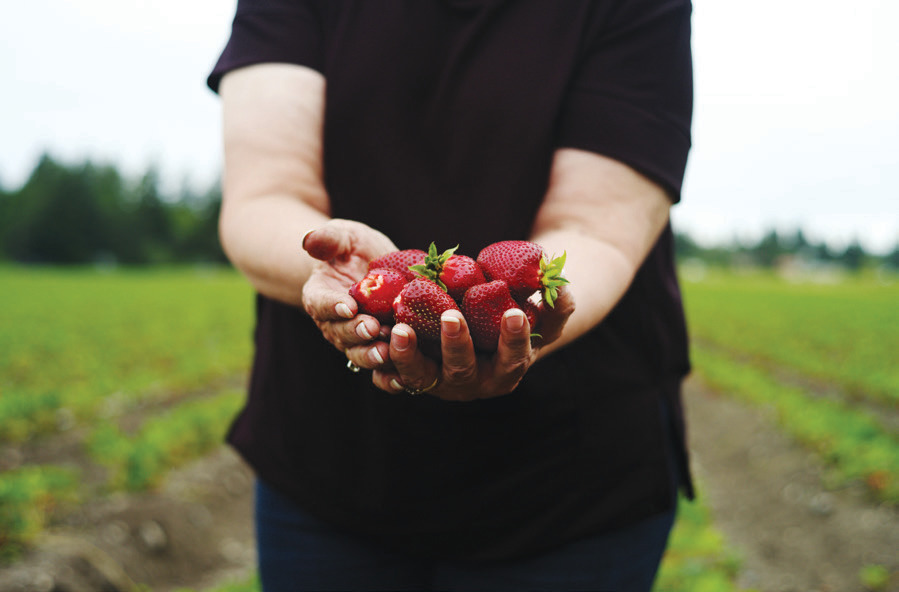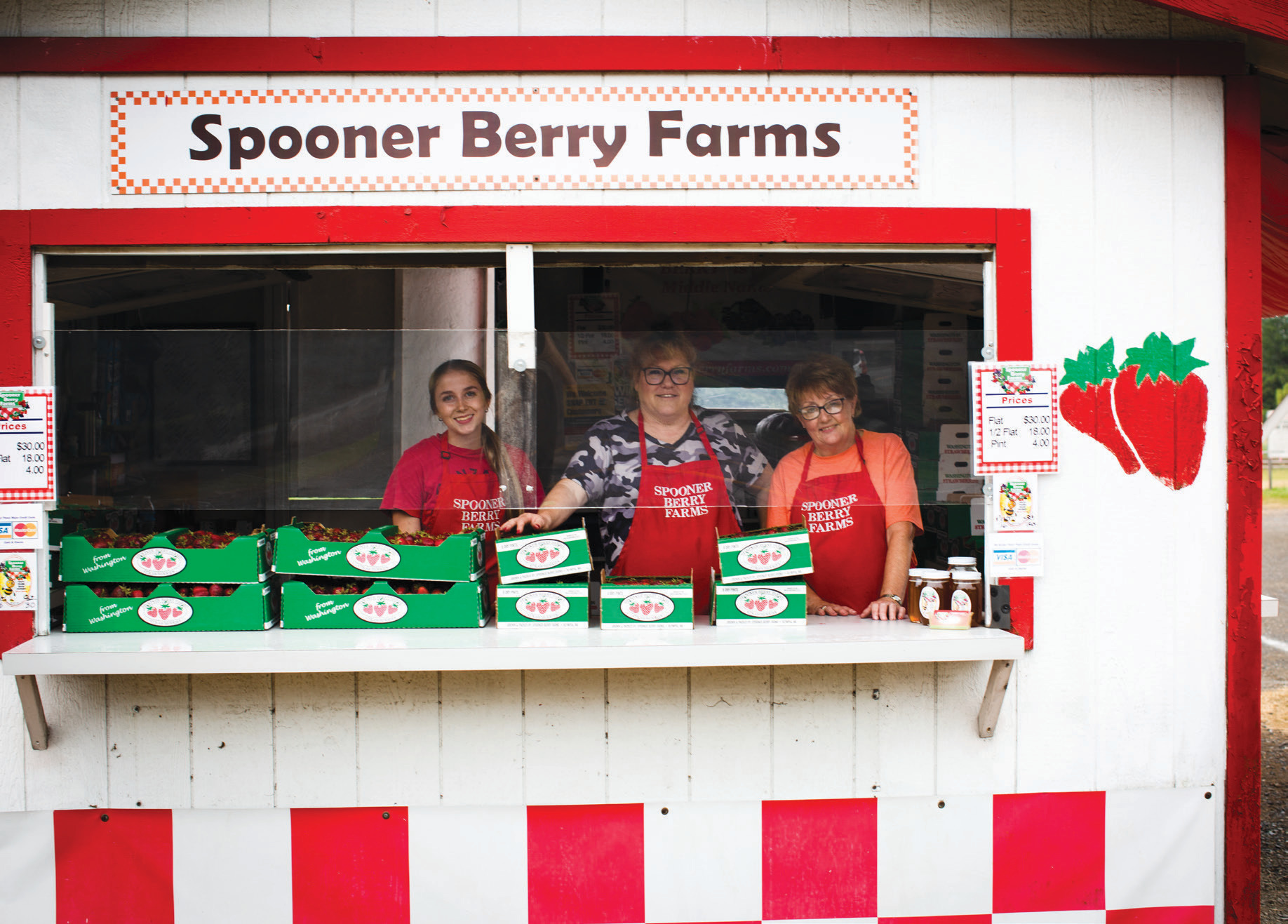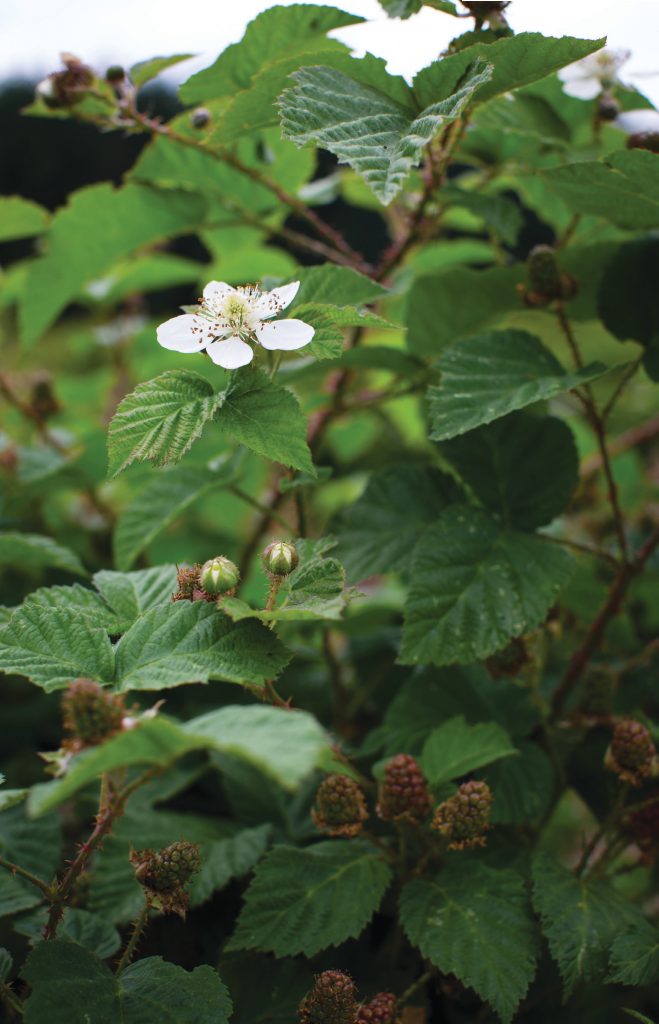Marking the apex of summer sweetness at Washington farms and fruit stands
written by Corinne Whiting
photography by Richard Darbonne
This year, Sue and Tim Spooner are celebrating the fortieth year of their family-owned Olympia farm, Spooner Berry Farms, where they grow marionberries, strawberries, raspberries, blackberries and blueberries.
By the time the Spooners married in 1980, Tim had farmed strawberries and raspberries with his dad since he was a teen. The couple began producing strawberries to sell with the help of a little Jeep, a borrowed utility trailer and a handmade sign. In their second season, they decided to set up an official berry stand. “It started very innocently and turned into every summer,” Sue said.
The pair now owns a 200-acre farm, and leases additional land from neighbors’ plots. Every variety they now grow, is backed by research seeking the sweetest option of that berry. For example, when Tim suggested adding blueberries to the lineup, Sue gave him the challenge of finding an “unbelievably sweet” candidate, which he discovered after nearly a decade of digging.
When their marionberries reach a pretty good size and are ripe, “they almost melt,” Sue said. This terroir for the berries closely resembles vineyards with thorny vines wrapped around wires “like artwork,” she observed.
But art takes time. Sue admits that growing berries is a lot of work, and it’s all done by hand. Indeed, Spooner Berry Farms picks its berries 100 percent fresh every day since its model is built around the berries being sold the same day. The work commences at 5 a.m. daily, with nineteen vans then pulling into the fields to load fresh berries. The drivers cycle through in fifteen-minute intervals to disperse goods to the various stands. A couple hours later, they make additional trips, so that berries are delivered fresh all day long. “We’re not raising berries for shelf life,” Sue said. “We’re raising for flavor.”
Since all berries get picked at the peak of their flavor, they last four to five days if refrigerated, even longer if they’re frozen or preserved with sugar. “The sooner you can put them in the fridge,” she advised, “the longer they will last.” If, however, you keep the berries on the counter, she warned, they’ll continue ripening. Home chefs and bakers will love learning that marionberries can be swapped into most recipes that call for blackberries.
“We really do take pride in the quality of the berries we’re putting out there,” Spooner said. “It is so rewarding for us when the season is on, for everyone to be so excited to see us come back. We feel a commitment to the communities we’ve been bringing berries to for so many years.”
Some employees, who Spooner considers family, have been working on the couple’s farm for thirty-plus years. This includes loyal school teachers and bus drivers who have pitched in during their summers off or even after they’ve retired.
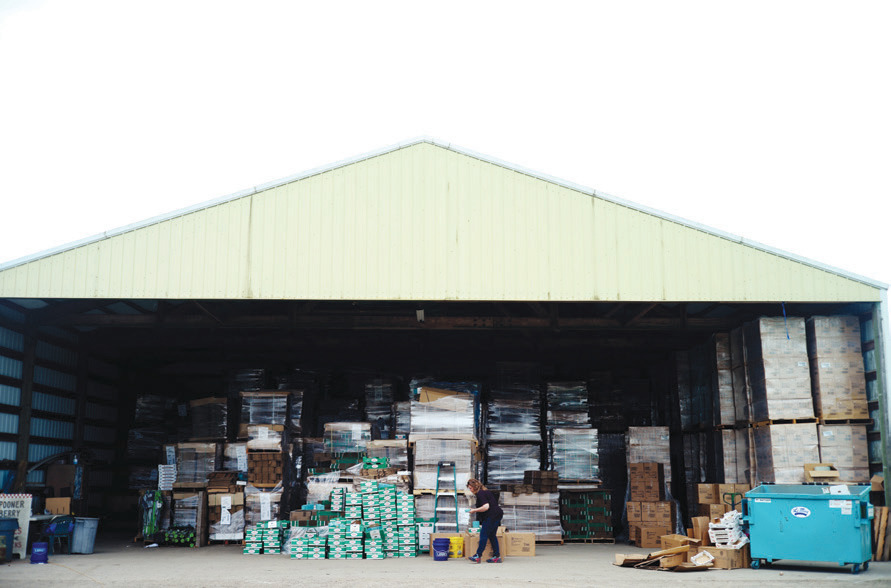
The farm currently runs twelve berry barns in locations from Yelm and Shelton to Aberdeen and Seattle’s Wedgwood neighborhood. Sue is frank about having reached capacity at present for the number of stands they keep in operation. “Bigger isn’t always better,” she said. No matter the locale, shoppers won’t want to miss the farm’s berry honey, a bestseller thanks to the beekeeper who brings 400 hives to the farm each year when the blossoms begin to come in.
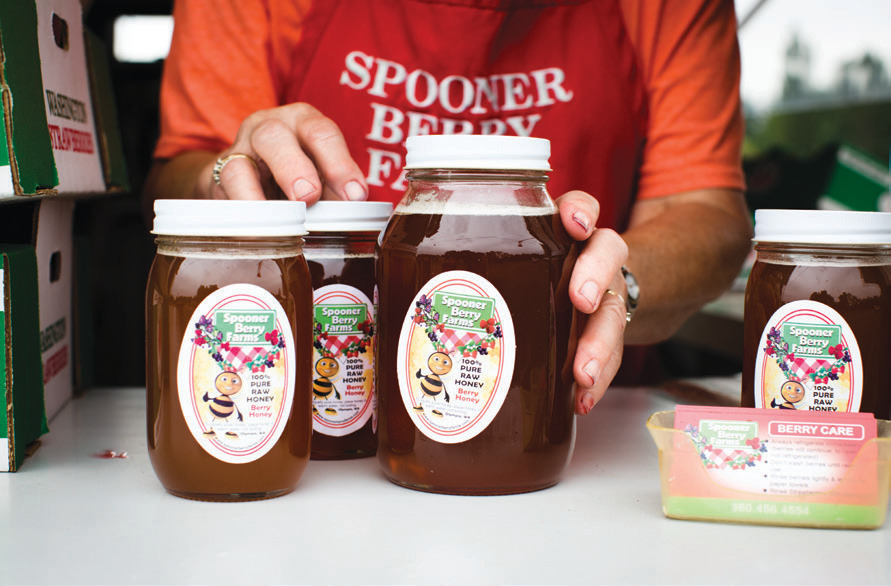
Marionberries typically peak from mid-July through mid-August. This year, the fields look amazing, and the plants had responded well to the cooler, wetter spring weather, Sue said during a May interview. The berries may need a bit more time to ripen this season, as a result, she said.
Chefs like Eli Dahlin, owner of Seattle eatery Light Sleeper, love working marionberries into their recipes whenever possible. Dahlin, who changes his menu daily, typically sources his marionberries from Tonnemaker Valley Farm in Royal City. His advice after many years in the kitchen? “They’re a pretty straightforward fruit,” he said. “I would suggest, though, that they be stored in a single layer on a sheet pan, as they are very delicate and perishable and tend to mold if clumped together.”
No matter how you serve and savor these coveted berries, there’s arguably no sweeter sign of Pacific Northwest summer.


